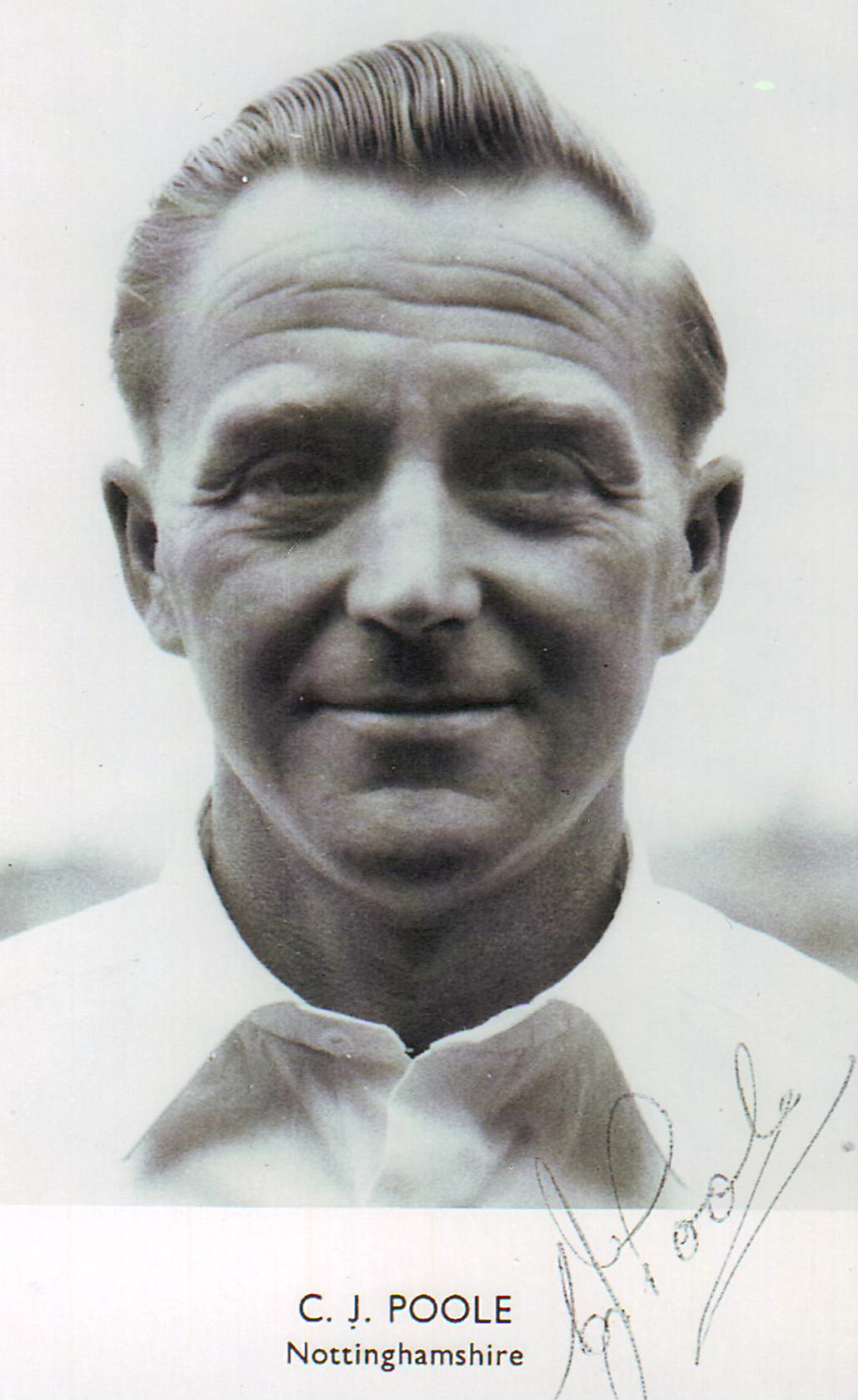A talented all-round sportsman, Poole played soccer for Mansfield Town as an outside left, when still a teenager - at just 15yrs 351days he was, and remains, the Stags' youngest debutant - and after the Second World War captained Gillingham.
His cricket debut for Nottinghamshire also came at a tender age - being just 18 when he hit 101* for Nottinghamshire v RAF at Trent Bridge in 1941. In this initial game he added an unbroken 208 for the first wicket with Reg Simpson in just 75 minutes. That was of course a non-first-class One Day match.
Poole then joined the Armed Services and was not released until the autumn of 1947. His ability was patently obvious and he was immediately offered and accepted a place on the Trent Bridge Playing Staff for 1948.
The County had an exceptionally strong batting line up at that period so despite hitting 143* in 200 minutes against Sussex, he had to battle for a place in the eleven. He was, aside from his batting, a brilliant fielder in the deep, but Notts seemed to possess an abundance of such men, headed by Hardstaff and Simpson.
In 1949 however, his form was such that the Committee had little option but to shoe-horn him into the side. He scored 1,293 runs at 43.10 that summer. Against Leicestershire Poole reached his 100 in exactly an hour; partnered by Simpson he added 251 in 97 minutes.
In 1951, hitting 1,721 runs he won a place in the MCC side to tour India and Pakistan that winter. Most unfortunately Poole broke a finger whilst practising, prior to the staging of the first match. For eight weeks he was a passenger in the squad, but in late December he recovered and hit 50 in his first game v Maharashtra. This innings was enough to get him drafted into the Eleven for the Third Test in Calcutta. Poole scored 55 and 69 not out on his International debut. These innings meant that Poole retained his place in the Test side for the remainder of the tour.
Despite two double centuries, including one for Notts against the Indian touring team of 1952 and a total of 1,700 runs in the summer, the selectors failed to acknowledge his continued form. He did once re-appear for England some ten years later, as a substitute fielder in the Trent Bridge Test, provoking what remains a favourite quiz question. At the time of this event Poole was already a grandfather - the question is obvious!
He remained a major part of the Notts batting through the 1950s, being top of the averages for the county in 1957, 1958 and 1960. In 1956 he was brought in from the outfield and kept wicket for much of the summer with considerable success. In 1962 his form dropped substantially and he was released at the close of that summer.
Cyril John Poole was born in Forest Town on 13 March 1921. His talent as a batsman was recognised at an early age, as was his footballing ability. After leaving the full time sports arena, he worked in Newark for engineering firm RHP and died in Balderton on 11 February 1996.
December 2020
Nottinghamshire First-Class Number: 382
See Cyril Poole's career stats here
